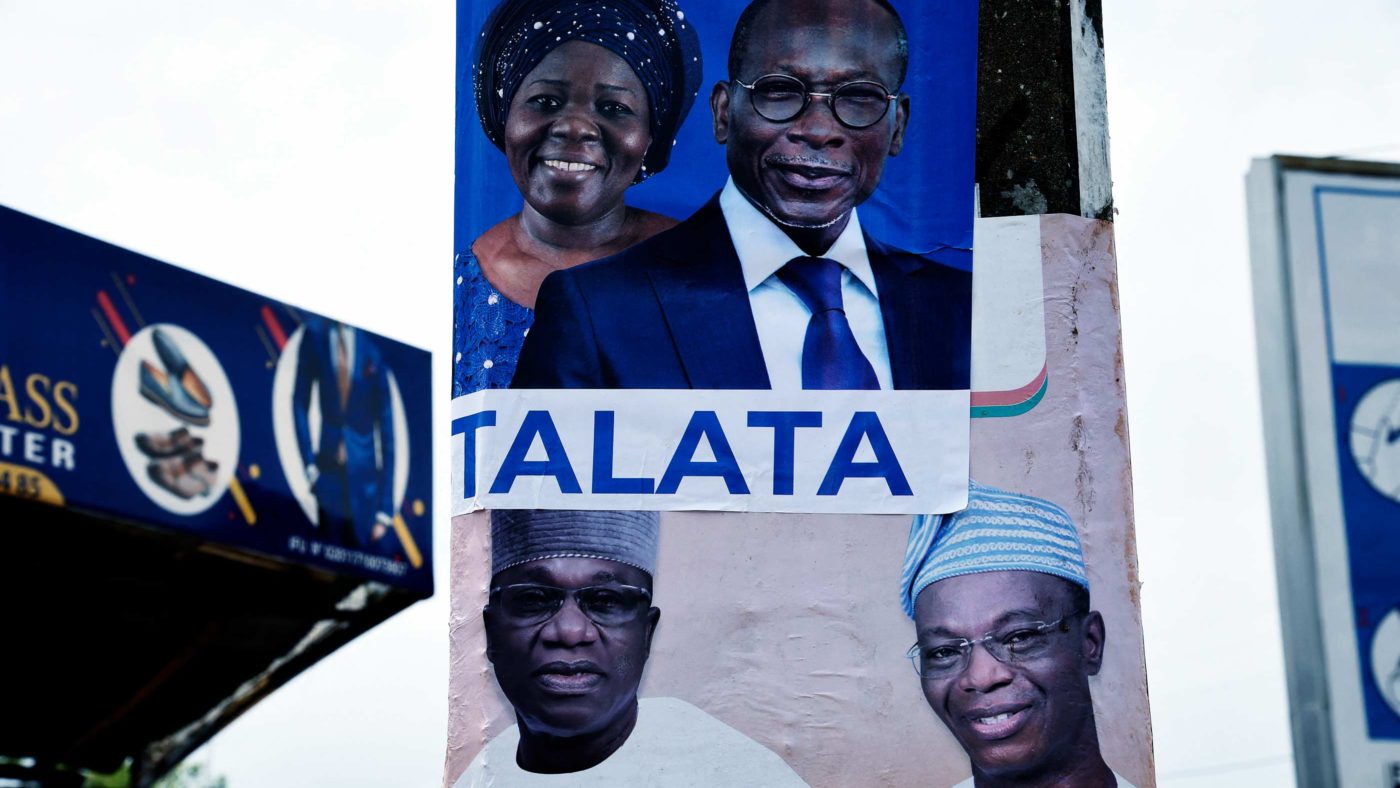This Sunday, the people of Benin will vote in a general election. This country of 11 million, squeezed between Togo and Nigeria, has a history of strong democratic institutions and elections. However, since 2016, when President Patrice Talon was elected, it has dropped 14 points in the Freedom House ratings, and is no longer classed as ‘free’ by the thinktank.
When viewed in this context, the detention of opposition leader Reckya Madougou for supposed ‘political terrorism’ comes as little surprise to those paying close attention to President Talon’s rule over the last five years. Distracted by Covid-19 and the erosion of democracy in other, larger, African nations, the international community is at risk of letting Benin’s election be stolen, largely unnoticed.
The case of Madougou should clearly alarm us. She is the country’s first ever female presidential candidate, a former Minister of Justice and advisor to other African governments on the fight against poverty and financial exclusion, and her nomination for the leading opposition party, Les Démocrates, was confirmed in February. By March 5, she had been detained for supposedly financing terrorist activities, on charges entirely fabricated by the authorities.
Other candidates, including former prime ministers and ministers, are now living in exile or have been barred from running thanks to other politically motivated charges. In April’s election, only two other candidates, both on the same side of the spectrum as Talon, will be included on the ballot alongside the incumbent. Appeals to the Constitutional Court from other parties, challenging their invalidation, have been ignored.
Local and legislative elections in 2019 and 2020 presaged the actions taken, as Talon’s government successfully amended electoral laws to exclude opposition parties and clamp down on subsequent protests. The detention of opposition figures and invalidation of candidatures are by no means the only tools which Talon’s government have used. Just this week, one of the judges working on the Madougou case came forward to reveal the political pressures the court was under to charge her.
Since the start of the year, the largely state-controlled media have been prohibited from broadcasting about the presidential election. This followed the banning in 2020 of ‘unauthorised’ online news outlets by the media regulator. These moves, which are a clear breach of the country’s constitution and should alert all of us who believe in a free press, demonstrate how far Talon’s presidency has travelled from the promises made in 2016. When he took office, it was on a mandate of diversifying the economy and lifting the Beninese out of poverty.
Instead, the already rich businessman has further enriched himself, expanding his presence in the country’s cotton sector. Back in 2016, Talon spoke of pursuing only a single, five-year mandate. And yet now, in 2021, Benin has an imprisoned and intimidated opposition and a partially free media, and a president taking clear steps to ensure his unchallenged victory next month.
Benin may be a small country, which does not feature prominently outside of Francophone Africa, but the pattern evident here – and replicated elsewhere in West Africa – should concern all of us. The international community must take a stronger stance and listen to opposition figures and human rights groups on the ground. The EEAS, the EU’s Foreign Service, has so far taken no action other than vaguely call for greater dialogue between the parties in Benin.
Europe – and others – must go further. The time for dialogue has passed – with the election only one week away, the window for placing pressure on the Government is disappearing fast.
Without such a signal, the international community’s failure to act decisively risks being viewed elsewhere as an indication that the effective theft of a democratic election will pass by largely unobserved, and totally unchallenged.
Click here to subscribe to our daily briefing – the best pieces from CapX and across the web.
CapX depends on the generosity of its readers. If you value what we do, please consider making a donation.


